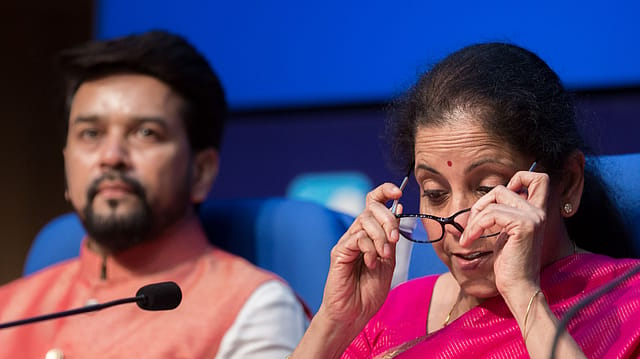No angels and demons for startups
ADVERTISEMENT

Thank God it’s Friday—-that was the sentiment among investors and startup founders on Friday, after finance minister Nirmala Sitharaman announced that section 56(2)(viib) of the Income Tax Act will not be applicable to startups registered with the Department for Promotion of Industry and Internal Trade (DPIIT).
The said section of the Income Tax Act dealt with angel tax, which is the income tax payable on capital raised by unlisted companies. It created a lot of heartburn in the startup community, and for good reason: angel tax was being levied at a rate of 30.9%.
“This [Sitharaman’s announcement] is definitely good news as we were postponing doing bridge investments with valuations. It was a major hindrance for business growth, as after we made investments our portfolio companies were spending time answering [income tax] officers rather than running their business,” says Bengaluru-based angel investor Nagaraja Prakasam.
According to a detailed note on the subject by Paisabazaar.com, a marketplace for loans and credit cards, “Angel tax is levied on the capital raised via the issue of shares by unlisted companies from an Indian investor if the share price of issued shares is seen in excess of the fair market value of the company. The excess realisation is considered as income and therefore, taxed accordingly.”
But for investors this tax provision didn’t make sense. Many wondered as to why the government was concerned with what valuation a startup gets, as the risk-capital was that of the investors. Moreover, there isn’t any ‘fair market value’ that could be ascribed to startups that are market disruptors.
“What was even more frustrating for entrepreneurs was the time involved and legal hassles and penalties that were imposed by this ill-conceived tax. I am glad it has been removed in its entirety. It should never have been there in the first place,” says Dhiraj Agarwal, CEO and co-founder, Campus Sutra, a startup fashion brand.
Sandipan Mitra, CEO-co founder, HungerBox, a Bengaluru-based B2B food-tech startup, concurs. “Early-stage startups rely on angel investors’ money to set up the basic infrastructure and get the company going until they receive further funding from venture capitalists. The undue tax levied on such investments created a barrier for starting up thereby affecting the entire ecosystem,” says Mitra.“The setting up of a dedicated cell to address the concerns of the startups, is a thoughtful move and I hope it enables faster resolution for tax-related issues, as assured.”
Sitharaman during her maiden Budget speech on July 5, said startups and their investors who file requisite documents and provide information in their income-tax returns would not be subjected to any kind of scrutiny in respect of valuations of share premiums. She further added that the issue of establishing the identity of the investor and the source of funds would be resolved by putting in place a mechanism of e-verification.
“Even after she had mentioned about angel tax during her budget speech, few startups still received notices. Hope this time it is a clean slate and no residual hang overs bothering startups on this topic,” adds Prakasam.
Vikas Vasal, partner and national leader, tax at Grant Thornton feels that the government has been pro-active in addressing the concerns of startups. “Removal of angel tax will go a long way in building trust and confidence in the startups and the investors, and shows government’s resolve towards ease of doing business in India and encourage entrepreneurship.”
Besides doing away with angel tax, which some investors called the ‘Devil Tax’, a lot more needs to be done to revive the animal spirits in India’s startup ecosystem. Industry experts point out that the Credit Guarantee Fund Trust for micro, small and medium enterprises (MSMEs) was a good scheme to help startups with debt without collateral. “Now with the financial institutions and banks under stress, they are asking for personal guarantee of directors and founders. This should be addressed,” says Prakasam.